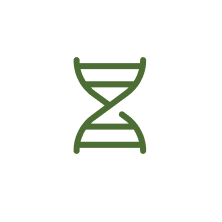 Or why are there so many researchers studying the sunshine vitamin?
Or why are there so many researchers studying the sunshine vitamin?
Written by Dr. Shepherd
Over the last decades there have been over 400 articles reporting on research projects devoted to Vitamin D. Why such a number of research projects? It would appear from the list of reports that Vitamin D is being shown to be required for many other functions in the human body than was traditionally known. Why do we need Vitamin D and what are the consequences of its deficiency? To refresh our memories there are several reviews which describe why we need Vitamin D and its sources and the results of its deficiencies.
Vitamin D is a fat-soluble vitamin that is found in few foods. It can be produced within your body when ultraviolet rays from the sun strike the skin and stimulate the production of vitamin D.1 Vitamin D obtained from sun exposure, food, and supplements is biologically inert and must go through two activations in the body before it can be used: the first occurs in the liver and the second occurs primarily in the kidney and forms the physiologically active 1,25-dihydroxyvitamin D, also known as calcitriol.1
Vitamin D has various functions including the absorption of calcium in the gut, helps your bone have normal mineralization, and it works to prevent hypocalcemic tetany (a condition of continued spasm of a muscle resulting from chronically low blood calcium).1 It is also needed for bone growth and bone remodeling by osteoblasts—cells which build bone, and osteoclasts—cells which break down bone.1 Without enough vitamin D, bones can become thin, brittle, or misshapen.1 Having enough vitamin D prevents rickets in children and osteomalacia, or the softening of bones, in adults.1 Together with calcium, vitamin D helps protect older adults from osteoporosis, where bones are very brittle and can easily fracture.1 It also enhances intestinal absorption of iron, magnesium, phosphate and zinc. Vitamin D has other roles in the body, including regulation of cell growth, neuromuscular and immune function, and reduction of inflammation.1
The main theme that comes out of these reviews is that there is a general Vitamin D deficiency which is a worldwide problem with many serious health consequences. Vitamin D deficiency is now recognized as pandemic and may be caused by the lack of sun exposure among humans which in turn, can lead to low levels of vitamin D in the body. Further, very few foods naturally contain vitamin D, and foods that are fortified with vitamin D are often inadequate to satisfy either a child’s or an adult’s vitamin D requirement and of course if these fortified foods are not consumed then the benefits of the fortification are not obtained.2 Vitamin D deficiency causes rickets in children and can worsen and lead to osteopenia (when bones are weaker than normal), osteoporosis, and fractures in adults.2 Vitamin D deficiency has been associated with increased risk of common cancers, autoimmune diseases, hypertension, and infectious diseases. If the case of not having enough exposure to the sun, at least 800–1000 IU vitamin D3/day may be needed to achieve adequate levels of vitamin D to confer beneficial health effects in children and adults.2 Vitamin D2 may be equally effective for maintaining circulating concentrations of 25-hydroxyvitamin D when given in physiological concentrations.
The above problems go a long way to answer the question originally posed as to why there are currently so many research projects concerning Vitamin D. It is clear that if its deficiency can produce many potential health problems then its correct level in the body can probably overcome certain serious health problems. From the above it is also clear that there are very good reasons to study Vitamin D in such detail as it is becoming the universal Vitamin, having effects on many different systems in the body.
How to make sure we get the required recommended levels of Vitamin D? There are several food sources as described above, such as cod liver oil and milk. Obviously other foods are available especially in the USA that are fortified with Vitamin D.
 How to make sure we get the required recommended levels of Vitamin D? There are several food sources: cod liver oil, salmon, tuna, sardines, milk. cheese, eggs (yolk), butter. Obviously other foods are available especially in the USA that are fortified with Vitamin D.
How to make sure we get the required recommended levels of Vitamin D? There are several food sources: cod liver oil, salmon, tuna, sardines, milk. cheese, eggs (yolk), butter. Obviously other foods are available especially in the USA that are fortified with Vitamin D.
 So how to make sure you get the right amount of Vitamin D that is being shown more and more to be so important for optimal health? As usual Neolife has the solution. Supplements are the ideal way to make sure we get what we need on a regular basis. Neolife Vegetarian Multi, NeoLife Chelated Cal-Mag with 400 IU Vitamin D3, and NeoLife Chelated Cal-Mag with 1000 IU Vitamin D3 will help supplement your diet. NeoLife Vegetarian Multi offers an array of essential vitamins and minerals, along with Vitamin D2 to help you reach your nutrient requirements. NeoLife Cal-Mag options offers a fantastic way of supplementing your needs with calcium, magnesium and the addition of Vitamin D at levels to suit your needs.
So how to make sure you get the right amount of Vitamin D that is being shown more and more to be so important for optimal health? As usual Neolife has the solution. Supplements are the ideal way to make sure we get what we need on a regular basis. Neolife Vegetarian Multi, NeoLife Chelated Cal-Mag with 400 IU Vitamin D3, and NeoLife Chelated Cal-Mag with 1000 IU Vitamin D3 will help supplement your diet. NeoLife Vegetarian Multi offers an array of essential vitamins and minerals, along with Vitamin D2 to help you reach your nutrient requirements. NeoLife Cal-Mag options offers a fantastic way of supplementing your needs with calcium, magnesium and the addition of Vitamin D at levels to suit your needs.
So make sure you get your regular dose of Vitamin D because more and more research is showing it to be needed for so many of our body functions and keep us in good health
 Written by David Shepherd, Ph.D., Microbial Biochemist,
Written by David Shepherd, Ph.D., Microbial Biochemist,
NeoLife Scientific Advisory Board Member
A world-renowned biochemist and expert in phytochemicals, Dr. Shepherd’s 20+ years of experience includes 16 scientific publications, 12 patents, and extensive experience in more than 40 international markets as Worldwide Director of Food Beverages for one of the world’s largest food companies.
References:
-
- Office of Dietary Supplements – Vitamin D. https://ods.od.nih.gov/factsheets/VitaminD-HealthProfessional/. Accessed October 10, 2018.
- Holick MF, Chen TC. Vitamin D deficiency: a worldwide problem with health consequences. Am J Clin Nutr. 2008;87(4):1080S-6S. doi:10.1093/ajcn/87.4.1080S
CLUB MEMBER
Join our wellness community as a Club Member and save 15-30% off all your orders!
Membership Perks
- Free to Join
- Shop Exclusive Products
- Save 15-30% Off Suggested Retail
- Nutrition & Personal Development
- Free Personal Website to Share Savings with Friends
- Earn Free Products when you Refer Friends
- Weight Loss & Fitness Challenges
- Supportive Wellness Community
PROMOTER
Join as a Promoter, let us pay you for sharing NeoLife and help us End the Trend of poor wellness and poverty!
Promoter Perks
All the perks of Club Membership PLUS…
- Own a Nutrition Startup Business (like a franchise but only a fraction of the startup cost)
- Money back rebates on orders… the more you buy & share the more you make
- Spare-time, part-time or full-time income
- Exciting Incentives like Cash and Travel
- Subscription to Team NeoLife app for training & sharing
- Business retreats, leadership training & personal development
- Performance-based Recognition
- Fun Events & Supportive Wellness Community
















